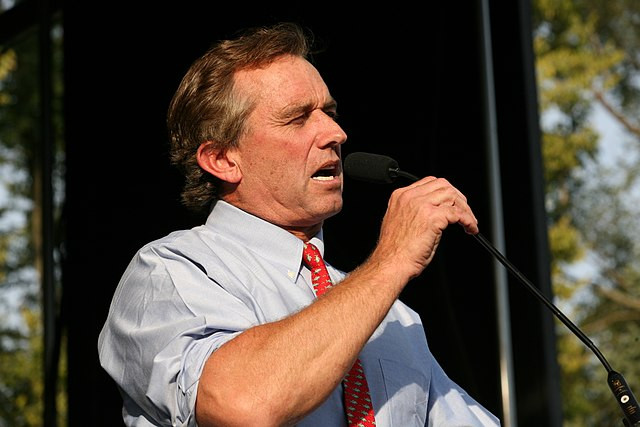In a political climate characterized by widespread voter dissatisfaction with the major party nominees, Robert F. Kennedy Jr. has emerged as a potential disruptor. His decision to run as an independent presidential candidate could reshape the dynamics of the 2024 race, with both Democrats and Republicans anxiously assessing the potential impact on their respective coalitions.
Kennedy's famous surname, combined with the current political landscape, positions him to potentially secure the largest share of votes for an independent candidate since Ross Perot's nearly 19 percent in 1992. Recent polls, while still in their early stages, have placed Kennedy at 14 percent when pitted against President Joe Biden and former President Donald Trump. Such numbers underscore the significance of his candidacy, especially in a tight race where every percentage point could sway the outcome.
The anxiety surrounding Kennedy's bid is palpable among both parties. Allies of President Biden have labeled his independent run as "dangerous," while the Republican National Committee, wary of Kennedy's appeal to the anti-vaccine segment of its base, has been quick to spotlight his liberal policy stances. The aim? To diminish any burgeoning support he might garner from the right.
Interestingly, Kennedy's support appears to be drawn almost equally from both Biden and Trump camps. However, his anti-vaccination stance might provide him with a unique opportunity to appeal more to Republicans than Democrats. While many Democrats have expressed a lack of enthusiasm for Biden's re-election campaign, it remains uncertain whether Kennedy is the alternative they seek.
Financially, Kennedy is well-positioned to mount a credible campaign. Beyond his own campaign funds, he enjoys the backing of a super PAC, American Values 2024, which boasts significant contributions from conservative donor Timothy Mellon and billionaire Gavin de Becker. As of June's end, this PAC had a substantial $9.8 million in its coffers. While this sum pales in comparison to the war chests of Biden and Trump, Kennedy's affluent backers could further bridge this financial gap in the months ahead.
One significant hurdle for Kennedy is the 15 percent average polling threshold set by the Commission on Presidential Debates to determine eligibility for debate participation. No third-party candidate has graced the debate stage since Perot in 1992. However, with the Republican National Committee's recent declaration that its nominee won't partake in debates overseen by the nonpartisan commission, the future of the 2024 debates remains uncertain.
Historically, third-party voting has seen an uptick when the major-party candidates are unpopular. The 2016 election, which featured two notably unpopular candidates in Trump and Hillary Clinton, saw nearly 6 percent of voters opting for a third-party choice. With Trump and Biden's collective popularity now waning, the 2024 election could witness a similar trend.
Despite the challenges and uncertainties, Kennedy's independent run could ultimately benefit Biden. While polls consistently depict Kennedy as more popular among Republicans, his anti-vaccination views and appearances on conservative platforms like Fox News might alienate Democratic voters. Thus, while Democrats might not be fervent Biden supporters, Kennedy's positions could deter them from switching allegiances, especially given the widespread apprehension about a potential Trump return to the White House.
In conclusion, Robert F. Kennedy Jr.'s independent presidential bid introduces a new layer of complexity to the 2024 elections. While his impact remains to be fully ascertained, one thing is clear: the road to the White House just got a lot more interesting.






